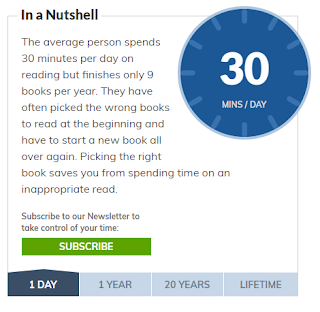this websit to say about The Buddhism and the Dhamma of The Buddha with Vipassana Meditation and education mind.
Friday, February 16, 2018
How to Read Books You Aren't Interested in but Are Useful for You
Successful people read a lot. But they don’t just read anything and everything. They read specifically for self-improvement, education and success.
If you don’t believe me, just take a look at these stats:1
Warren Buffett reads between 600 and 1,000 pages per day.
Bill Gates reads about 50 books per year.
Mark Cuban reads for more than three hours every day.
Mark Zuckerberg read a book every two weeks throughout 2015.
As I’ve already stated, these hugely-successful people don’t just read anything, instead they self-educate and self-motivate through reading high-quality content.2
Fiction Books Have Stolen the Spotlight
People like Bill Gates and Mark Zuckerberg are prolific readers of books that help them to improve their skills, knowledge and understanding. But the average person appears to have little interest in reading self-improvement books.
If you look back at decades of book sales, you’ll see that fiction books tend to be much more popular than self-improvement books. 70% of the Amazon Best Sellers in 2016 are fictions including
Fiction books are designed and written in such a way as to impel you to continue reading them. There’s a hook or cliffhanger in every chapter that keeps you focused on reading until the last page, so that you can find out what happens next – and what happens at the end.
On the other hand, non-fiction books in the self-improvement field are intended to help you solve a problem or reach a specific goal. In most cases, these types of books are not written in story form rendering them less attractive to the majority of readers.
A lack of storytelling in self-improvement books leads many people to believe that the books are dull or difficult to read and understand.
Do you recognize yourself in the last sentence?
If you do, then the good news is that you’ve most likely being picking the wrong type of self-improvement books for you. For example, if you’re fascinated by space exploration, but choose to read a technical-heavy, scientific book on the subject – you’ll quickly lose interest. However, if you chose a book that is easier to understand, say an autobiography of a NASA astronaut, you’ll probably love the book – and boost your interest in space exploration.
You could also think of it this way, you’ve just stated to learn piano, but someone’s given you an advanced piano music sheet. Not only will you struggle with the sheet but it may put you off piano playing for life.
It’s All About Picking the Right Self-Improvement Books
So, what’s the secret to choosing the right level of non-fiction book?
Firstly, you need to have some context. That could be a problem you want to solve – or a goal you want to achieve. For instance, if you’re not planning on being an entrepreneur, then you’re unlikely to understand or enjoy the context of a book like High Output Management – even though it’s a highly-recommended self-improvement book.
Subscribe to:
Post Comments (Atom)

No comments:
Post a Comment